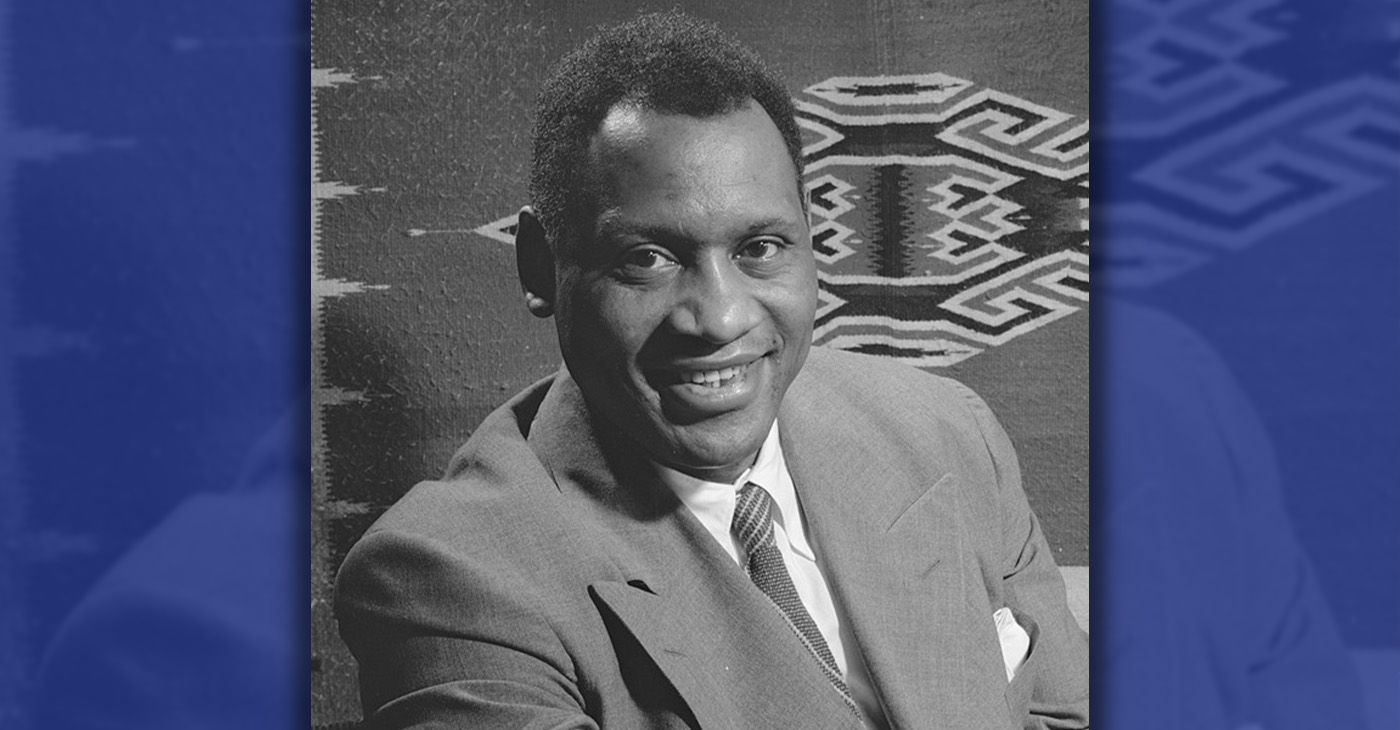racism
Airbnb host asks black guests which 'monkey' will sleep on the couch
SAN ANTONIO OBSERVER — A Black chef and his friends encountered a racist Airbnb host in New York City who asked which ‘monkey’ would be sleeping on the couch after the group asserted that her listing said it accommodated five people.
By Matthew Wright
A Black chef and his friends encountered a racist Airbnb host in New York City who asked which ‘monkey’ would be sleeping on the couch after the group asserted that her listing said it accommodated five people.
Meshach Cisero – owner and executive chef of The Cage Bird in Washington D.C. – took to his social media to share the unsettling experience of being kicked out by the host at 2am on Saturday morning. The listing was for an apartment in the Upper East Side.
‘We arrived to our @Airbnb, and we were harassed several times before being thrown out at 2 am,’ Cicero said on Instagram.
‘Her reasonings were because she felt unsafe, we were going to steal and destroy her property, and then told us to “Get the f**k out of her house immediately!” We cooperated and began to pack our things to leave.’
Cisero and his four friends compiled and started gathering their things so that they could leave. But he asserts that as they were packing, the host bust into the apartment with a camera.
They asked her to respect their privacy – as one of them had just exited the shower – but the woman continued her tirade and called them ‘criminals’ adding that she didn’t feel ‘safe.’
Cisero added: ‘She became so angry, rude, and disrespectful that we had to call @NYPD because we weren’t sure if she’d attack us while trying to leave.’
Cisero included videos of him explaining what had happened but also of the host – identified only as Kate – calling the group ‘monkeys.’
The clip shows Kate arguing with Cisero about how many the space can accommodate, with the host asserting that it says four.
‘It says four and a couch, so that’s five. You have that on your Airbnb description’ the chef declares.
Kate retorts, ‘which monkey is going to stay on the couch?’
This article originally appeared in the San Antonio Observer
Alameda County
Trump Order Slashes Federal Agencies Supporting Minority Business and Neighborhood Development
The latest executive order targeted several federal agencies, including the Minority Business Development Agency (MBDA) and the Community Development Financial Institutions Fund, ordering that their programs and staff be reduced “to the minimum presence and function required by law.” The executive order targeted more agencies that Trump “has determined are unnecessary,” the order stated.

By Brandon Patterson
On March 14, President Trump signed an executive order slashing the operations of two federal agencies supporting growth in minority business and neighborhoods as he continued his attacks on programs supporting people of color and on the size of the federal bureaucracy.
The latest executive order targeted several federal agencies, including the Minority Business Development Agency (MBDA) and the Community Development Financial Institutions Fund, ordering that their programs and staff be reduced “to the minimum presence and function required by law.” The executive order targeted more agencies that Trump “has determined are unnecessary,” the order stated.
The MBDA’s mission is to “promote the growth and global competitiveness” of minority business enterprises, or MBEs. In 2023, according to its website, the agency helped MBEs access $1.5 billion in capital and facilitated nearly $3.8 billion in contracts awarded to minority business enterprises. It also helped MBEs create or sustain more than 19,000 jobs nationwide. Similarly, the CDFI Fund supports economic growth in under-invested communities by providing funding and technical assistance to local CDFIs, including banks, loan funds, and credit unions, that support community development projects in cities across the country. In 2023, the fund supported more than 1,400 local CDFIs across the country, including more than 80 in California — among the highest number for any state in the country.
The MBDA has local satellite business centers operated by organizations that support minority clients with services such as business consulting, contract bid preparation, loan packaging, and accessing capital funding. The San Francisco Bay Area business center is San Jose, operated by San Francisco-based organization Asian, Inc. Meanwhile, local Oakland CDFIs supported by the federal CDFI fund since 2021 include Habitat Community Capital, TMC Community Capital, Gateway Bank Federal Savings Bank, Beneficial State Bancorp, Inc., and Main Street Launch.
“It is clear that the hollowing out of the CDFI Fund and MBDA is not being ordered because those programs have failed in their mission,” the CEO of Small Business Majority John Arensmeyer, a national organization that advocates for small businesses, said in a statement on Saturday. “Instead, it is yet another case of President Trump using DEI as a club to eviscerate programs that seek to level our economic playing field.”
Congresswoman Lateefah Simon also slammed the decision in a statement to the Oakland Post. “As a member of the House Small Business Committee who represents multiple CDFIs in CA-12, I believe Trump’s gutting of operations at the Minority Business Development Agency and at the Community Development Financial Institutions Fund is a direct attack on small businesses, communities of color and other underserved communities,” Rep. Simon said. “Both the MBDA and the CDFI Fund were created with bipartisan support to help historically underserved communities and small businesses — and both programs have helped to dramatically change the material realities of people and bolster entrepreneurship in the U.S. There is no logic to this decision. The point is discrimination and cruelty.”
Activism
NNPA Launches National Public Education and Selective Buying Campaign
“We are the trusted voice of Black America, and we will not be silent or nonresponsive to the rapid rise of renewed Jim Crow racist policies in corporate America,” stated NNPA Chairman Bobby R. Henry Sr. “The Black Press of America continues to remain on the frontline keeping our families and communities informed and engaged on all the issues that impact our quality of life.”

Washington, DC: The National Newspaper Publishers Association (NNPA), representing the Black Press of America, has announced the planning and implementation of a national public education and selective buying campaign across the nation in direct response to those corporate entities that have dismantled their respective Diversity, Equity and Inclusion (DEI) commitments, programs and staffing. NNPA Chairman Emeritus Danny Bakewell Sr. explained, “Now is the time for the Black Press of America once again to emphatically speak and publish truth to power.”
“We are the trusted voice of Black America, and we will not be silent or nonresponsive to the rapid rise of renewed Jim Crow racist policies in corporate America,” stated NNPA Chairman Bobby R. Henry Sr. “The Black Press of America continues to remain on the frontline keeping our families and communities informed and engaged on all the issues that impact our quality of life.”
At a recent convening of NNPA member publishers and editors, a united resolve was reached that each member publication of the NNPA will begin a national public education campaign coupled with the release of research data on those American companies that are engaging in efforts to sanction racial injustice, inequitable polices, divisive leadership, and economic apartheid in America.
“We note forthrightly that Black Americans spend $2 trillion dollars annually as consumers of products and services throughout the United States,” NNPA President and CEO Dr. Benjamin F. Chavis Jr. emphasized. “We now must evaluate and realign to question why we continue to spend our money with companies that do not respect us,” Chavis continued. “This now must come to an end. These contradictions will not go unchallenged by 50 million Black Americans who have struggled for centuries to ensure equality, fairness and inclusion in our nation’s democracy.”
A selective buying campaign involves exercising the right to select what we spend our money on and who we spend our money with. We are starting with targeting TARGET.
The following are some of the major American companies that have publicly retreated from Diversity, Equity and Inclusion:
- TARGET
- Lowe’s
- John Deer
- Walmart
- Meta
- Tractor Supply
- Amazon
- McDonald’s
- Ford
Arts and Culture
Paul Robeson: A Voice for the Ages, A Champion for Justice
Robeson first gained widespread recognition on stage and screen, delivering commanding performances that captivated audiences. Yet, it was his voice in concert halls that sealed his legacy. His repertoire was vast, spanning spirituals, classical compositions, global folk traditions, and songs of struggle — music that carried the weight of the oppressed and the hopes of the marginalized.

By Tamara Shiloh
Paul Robeson was born April 9, 1898, in Princeton, New Jersey. At 6’ 3”, he was a towering man of intellect, talent, and conviction. Before he became an international icon, he earned his law degree from Columbia University in 1923, supporting himself by teaching Latin and playing professional football on the weekends. But the law would not hold him for long. His voice had other plans.
Robeson first gained widespread recognition on stage and screen, delivering commanding performances that captivated audiences. Yet, it was his voice in concert halls that sealed his legacy. His repertoire was vast, spanning spirituals, classical compositions, global folk traditions, and songs of struggle — music that carried the weight of the oppressed and the hopes of the marginalized.
In 1921, he married Eslanda Goode, a fellow Columbia student and a journalist with her own remarkable intellect and ambition. Their marriage, which lasted over four decades, was a partnership in every sense. Goode became his manager, encouraging him to leave law behind and fully embrace his calling. In 1927, they welcomed their son, Paul Robeson Jr.
By the mid-1920s, Robeson was making waves in theater. He starred in All God’s Chillun Got Wings (1924) and The Emperor Jones (1925). That same year, he made his film debut in Body and Soul, directed by pioneering Black filmmaker Oscar Micheaux. In 1928, he mesmerized London audiences in Show Boat, where his rendition of Ol’ Man River transformed the song into a powerful anthem of resilience.
Robeson and his family moved to Europe in the late 1920s, and over the next decade, he built an impressive career in both film and music. He starred in Borderline (1930) and later again in the 1933 film adaptation of The Emperor Jones. Over the next few years, he appeared in six British films, including Jericho and Big Fella (both released in 1937). He also starred in the second screen adaptation of Show Boat (1936), alongside Hattie McDaniel and Irene Dunne. However, his final film, Tales of Manhattan (1942), left him deeply disillusioned. He openly criticized its degrading depiction of Black life, signaling his growing commitment to using his platform for activism.
In 1963, after years of political persecution and declining health, Robeson returned to the United States. Following Goode’s death in 1965, he lived quietly with his sister. On January 23, 1976, Robeson passed away from a stroke at the age of 77 in Philadelphia.
-

 Activism4 weeks ago
Activism4 weeks agoWe Fought on Opposite Sides of the Sheng Thao Recall. Here’s Why We’re Uniting Behind Barbara Lee for Oakland Mayor
-

 Activism4 weeks ago
Activism4 weeks agoFaith Leaders Back Barbara Lee for Mayor, Criticize Candidate Loren Taylor for Dishonest Campaigning
-

 Activism3 weeks ago
Activism3 weeks agoOakland’s Most Vulnerable Neighborhoods Are Struggling to Eat and Stay Healthy
-

 #NNPA BlackPress4 weeks ago
#NNPA BlackPress4 weeks agoRev. Dr. Jamal Bryant’s Black Church Target Boycott Mobilizes 150,000
-

 #NNPA BlackPress4 weeks ago
#NNPA BlackPress4 weeks agoRecently Approved Budget Plan Favors Wealthy, Slashes Aid to Low-Income Americans
-

 Activism2 weeks ago
Activism2 weeks agoOakland Post Endorses Barbara Lee
-

 Activism4 weeks ago
Activism4 weeks agoGroup Takes First Steps to Recall District Attorney Diana Becton
-

 Activism4 weeks ago
Activism4 weeks agoOakland Post: Week of March 19 – 25, 2025






















































1 Comment